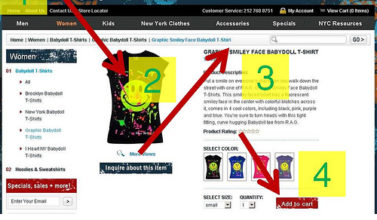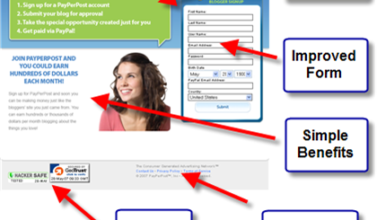
Social media optimisation (SMO) can be an important feature in helping your business successfully reach its objectives. Social media extends well beyond the marketing mix and brands should integrate it into a number of key marketing activities. Remember, social media is an engagement channel to promote brand awareness, special offers and, of course, customer loyalty. This is where social media optimisation comes into the equation.
What Is Social Media Optimisation?
Social media optimisation refers to the process whereby companies increase the awareness of their product, event or brand. It involves using a number of social media channels and communities to generate publicity on a viral scale. It includes using RSS feeds, social news, bookmarking sites, social media sites and video and blogging sites.
SMO is similar to SEO as the overall goal is to drive traffic to your website. Social media optimisation is important for internet search rankings which is something many brands often overlook even though it can help increase their position. When it comes to social media, there are two main search engines brands need to optimise for, i.e. the search function in each social network and Google search.
Optimising for either search environment results in several direct and indirect benefits. In a nutshell, the direct benefit is that more people will find your website and social profiles leading to more connections. The indirect benefit is in the form of an extra link that points to your website from your social profiles.
How To Perform Effective Social Media Optimisation
Social media is one of the most powerful channels for branding and marketing as so many people use it daily. Having the right SMO tactics in place is essential for business success and these are our top tips.
1. Integrating Social Media With Your Website
Considering that more and more people are on social media, it’s become increasingly important to integrate social sharing tools with your website. While people search the web and find your site either on mobile or desktop, the easier it is to share on social the better for your brand.
The easiest way to do this is including direct web links to your social media channels from your website and vice versa. We also recommend adding social media sharing buttons to blog posts for increased awareness and improved customer experience (CX).
Social media channels have a high web authority by default which means links on social are considered higher-quality links. Even a brand new Twitter or Facebook page will likely rank well because of their overall high web authority.
2. Social Media Optimisation Requires Consistency
Creating a social profile seems simple but it’s actually one of the first areas businesses often fall short. In order to rank well and yield proper results, brands must remain consistent across all social channels.
Never settle for an incomplete profile regardless of the social channel as search engines generally favour profiles with all the required information. Not only that, it is more professional as it generates a cohesive experience for everyone in your network. Make sure that all the contact information on your social profiles exactly match your website.
3. SEO, Keywords And Social Media
Maximise the exposure of your social media profiles by effectively using keywords. If you don’t optimise your profiles correctly, you might as well hand the clients over to your competitors. While you should include keywords and key phrases into your social profiles, remember to do so in a natural, ‘non-spammy’ or ‘salesy’ way.
One of the most effective ways to use keywords effectively in social media optimisation is to include them in your profile or page name. This will help you rank better in keyword searches on Google or other search engines and within the social network search function.
By now you should know that keywords are essential for any website or blog content and digital ad campaigns. If that’s the case, why would it be any different with social content? Using keywords in social posts will also help keep your content relevant to your target audience. For a more detailed overview, read this article on ‘Keyword Research and Digital Marketing’.
4. Always Be Active On Social Media
Social media is all about being active and with that comes social signals which are important SEO factors. Search engines look at social signals and determine how often you post, the number of people that interact with you and if there are social sharing elements available.
While it sounds silly, so many brands often forget that the purpose of social media is to build relationships. You cannot set and forget social media nor can you spend 5 minutes a day sharing and posting random things and expect noticeable results. You need to get out there, be active on all channels and participate in conversations. Spend some time following your customer base and share relevant and helpful content from your own website and other sources.
5. Always Stay On Brand
We cannot stress enough the importance of always putting your best foot forward and to stay on brand. Users generally notice cover images first when they land on your page which is why you need to create a good impression. This is the ideal opportunity to effectively convey your brand message to your existing and potential customers.
While it may seem simple enough for experienced designers, remember that each social platform has recommended size guides. For maximum results and exposure, ensure that your cover image is designed and displayed according to the social channel’s requirements. Always use professional images that are interesting, relevant and memorable. If you have to use copyright images, don’t forget to ask permission first.
6. Be Smart And Stay In Control
While this may apply to smaller businesses, it is still something many brands forget. Under no circumstances should you allow employees to use personal email addresses to create or manage your business’ social media accounts. Be smart about who you employ and always keep in mind staff turnover. Only use a company owned email account as you obviously can’t optimise anything if you no longer have access.
We’ve already touched on social media marketing in some detail but if you need additional information, you should really read this article. It explores the social media trends for 2019 and beyond with several handy social media tips.
For more interesting stories and up to date articles on Social Media, Marketing Automation, Online Reputation Management and Video Marketing among others, please follow our weekly blog. If you need help building, managing and marketing your brand online, please get in touch for a free consultation.
Related Post
What’s the single...
Adam Vincenzini from Comms Corner recently posted a very good article which I think goes...
- January 25, 2011
- By Rob Thomas
- Blogging
Effective Facebook Marketing...
With over 600 million users, Facebook represents the single most connected platform on...
- March 1, 2011
- By Nadine Thomas
- Latest Online Trends
Monitor, Influence and Lead...
Get Actively Involved in the Outcome of Search Results Don’t take negative publicity...
- April 28, 2011
- By Rob Thomas
- ORM
Free Online Reputation...
Listen to What’s Being Said About You Online (Free online reputation monitoring...
- May 5, 2011
- By Rob Thomas
- ORM
Top Tips for Product Page...
As the internet evolves and user expectation becomes increasingly sophisticated, creating...
- May 31, 2011
- By Rob Thomas
- e-Commerce
How To Drive Sales With...
Landing pages have long been the primary tool of the web-savvy marketer. Whether the...
- June 12, 2011
- By Nadine Thomas
- e-Commerce











Leave a Comments